Turkey's Dark Side - Deep states from Ankara to Belgrade
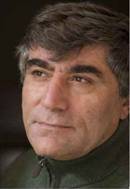 |
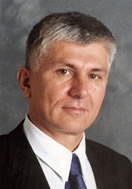 |
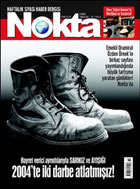 |
|
Hrant Dink (†) |
Zoran Djindjic (†) |
Nokta magazine (†) |
Dear readers,
These are dramatic weeks in South East Europe.
The Chief Prosecutor in Ankara has called for the closure of Turkey's governing party, the AKP. He has demanded a five year ban on most of its leading politicians, including the Turkish Prime Minister. Later this week, the Turkish Constitutional Court voted unanimously to accept the AKP closure case.
This is a serious set-back for Turkey's democracy, argues a new ESI Briefing Paper - Turkey's Dark Side. In response to this challenge ESI is calling on the Turkish government to respond with a referendum on a new liberal constitution that meets European standards.
In recent years ESI reports have shown how much Turkey's society, economy and democracy have changed since 1999. We have examined the emergence of a new middle class and the modernization of the Turkish heartland in Islamic Calvinists. We looked at the remarkable legislative revolution that has improved the position of women since 2001 in Sex and Power in Turkey. As a result of these silent revolutions, we have argued, Turkey deserves to be given the benefit of the doubt by the European Union. Those who argue that Turkey will never reach European standards of democracy and development ignore the fact that societies can change.
At this moment, however, it is difficult to be upbeat about Turkey's democracy. A new ESI picture story - The Battle for Turkey's Soul – hopes to provide some background facts for our readers.
We take a look at some of the dramatic events that have led Turkey to the current cross-road: the murder of Hrant Dink, a voice of reconciliation in Istanbul, killed by a nationalist in 2007; the tensions, including rumours of coups, between the government and the Turkish armed forces; mysterious murders which today appear, as a result of a serious investigation, as elements of a wider nationalist conspiracy. You also find more on the concept of the deep state in Turkey on the Rumeli Observer.
The picture story also looks at the background to the recent dispute over the headscarf at universities and at the strange indictment prepared against the AKP.
 |
|
Zlatibor mountains, Serbia |
Serbia's deep state
In Turkey voters have spoken in favour of reform and EU integration in the summer of 2007. In Serbia they have to do so in upcoming elections. In the weeks until then ESI is increasing its focus on Serbia.
This time we are taking a look at the Serbian deep state: with a provocative discussion paper on the unreformed nature of the Serbian security structures by Vreme journalist and ESI associate Dejan Anastasijevic. Dejan also explains What is keeping Serbia back. This is part of the many interviews with analysts, politicians and activists from the region that you will soon find on the Return to Europe – Balkan documentary series website.
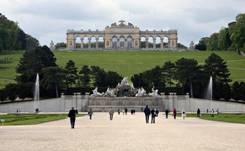 |
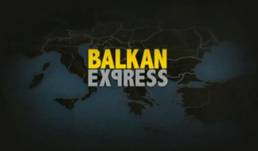 |
|
Vienna, Schönbrunn |
Presentations and media – ERSTE Foundation symposium in Vienna
If you are in Vienna on Thursday this week please come to the international symposium "Return to Europe - Talking Balkans", organised by ERSTE Foundation and ORF.
We will celebrate the first season of the TV documentary "Balkan Express" in Vienna. This film series is based on ESI research and features many places, topics and people that have been subject of ESI reports. The stories were developed in cooperation with ESI analysts and will be broadcast on 3sat (starting 27 April 2008) and ORF (autumn 2008).
To find out how to take part in the symposium go here. To find out about the films series we have put two interviews, one in Der Standard and one for the symposium, on our website.
In recent weeks ESI research on Turkey was also presented in New York (video in English), on CNN Turk (video in English/Turkish) and discussed on international womens day in Radikal (in Turkish). ESI Balkan analysis was presented in Berlin, in Brussels at EPC and in Sarajevo at the Bosnian parliament.
Many best wishes, this time from Bucharest at the time of the Nato summit,
![]()
Gerald Knaus

Gerald Knaus
